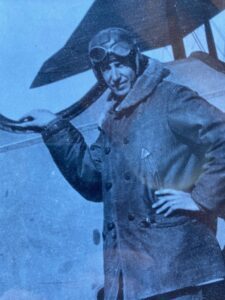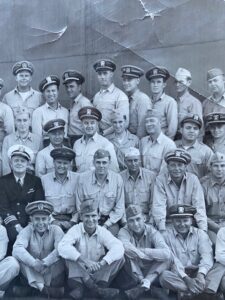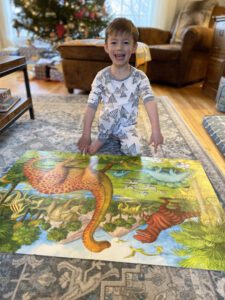We came back to Willoughby Lake when the world was coming to an end.
In March, the virus was spreading fast in ways that proved it had a sense of irony, turning a conference of Biogen executives into a superspreading bomb. Around the time I learned about the conference I was riding the T (Boston’s dilapidated subway system), packed in with other riders cheek to cheek. The train had broken down and we waited, breathing together nervously, for an hour. It was in that train that our escape to Willoughby took shape.
Within a week my wife, Nancy, and I packed both cars to the gills with pandemic essentials, plus our cat—Worf—named after the security officer on Star Trek, and we headed North on Route 93 at warp factor 5 towards a situation no-one had been in before: a little town in Westmore, Vermont, twenty miles from Canadian border, at the dawn of the new plague.
Technically we were going from our first home, in Lexington, Massachusetts, to our second home. But to me our place in Westmore by the shores of Willoughby Lake in Vermont’s Northeast Kingdom transcends the ‘first’ or ‘second’ designation. It’s my center. The roots of my whole being. A resilient branch of my family tree.
In 1907, my great-grandparents, George and Nana Myers, bought 200 acres of land in Westmore for their dairy farm, a sloping blanket of lush fields and dense forests that connects at its curvy apex with Willoughby Lake. According to family lore, George didn’t want to buy any of the beachfront because he didn’t think his cows needed it. Nana told him, “If you think we’re buying that land but not the lakefront you’re out of your mind.” Nana was clearly the sharpest tool in the shed.
Thanks to Nana, what became Willoughby Farm—still owned by the family— includes two beaches with beautiful vistas of the lake and the surrounding mountains. There’s Mt. Pisgah and Mt. Hor to the south, one big mountain that had been cleaved in two by a glacier, now with the long deep lake separating their rocky cliffs. The ridge of Mt. Hor is called Whaleback by the locals, its shape mimicking a leviathan. Close to the tail of the whale rises Mt. Wheeler followed by waves of undulating hills. At night, the Milky Way is evanescent above all of this, so bright no flashlights are needed to walk barefoot across the fields.
George and Nana ran the dairy farm until the late 1920s. When a young Robert Frost came to Willoughby Lake to write poems for his first book, North of Boston, he asked Nana if he could pitch a tent in one of her fields, and she of course agreed. The family farmhouse, the Homestead, looks out on Willoughby Lake. Frost speaks of the lake in his poem, A Servant to Servants. In my mind’s eye I picture the woman in the poem as my great-grandmother, because in fact she may have been Frost’s inspiration.
“You take the lake. I look and look at it.
I see it’s a fair, pretty sheet of water.
I stand and make myself repeat out loud
The advantages it has, so long and narrow.
Like a deep piece of some old running river
Cut short off at both ends. It lies five miles
Straight away through the mountain notch
From the sink window where I wash the plates
And all our storms come up toward the house
Drawing the slow waves whiter and whiter and whiter.”
When the Great Depression hit, Nana and George found the dairy business was too tough a row to hoe.
Without new revenue, they’d lose the farm. So the part of the land that George never wanted became their savior. Soon, red and white rental cottages sprouted up along our shoreline like wild roses. For five decades, Willoughby Farm cottages were a summer home away from home for families all up and down the Eastern seaboard. When George and Nana passed on, my grandparents, Fred and Harriet Fish, took over.
Through the 1960s my family would spend summers at our cottage—The Cheerio—a small rectangle packed with me and my four older brothers. In 1969, my grandparents gave four acres of Willoughby Farm to my parents, Janet and Bill. Dad promptly had The Cheerio dragged on logs up onto the land and built a whole new house on top of it. Dad loved nature with a passion, so designed the house to let in as much of it as possible. The entire front of the two story structure is glass, south facing for passive solar heating. My parents added onto the house when they retired in the 1980s and we bought the property from their estate in 2009. But given its history, it’s never felt like a thing we owned, but rather something precious handed down — from Nana and George, to Fred and Harriet, to Bill and Janet, to us. Our two children, Abigail and Nicholas, and their children, are next in line.
The ancestry of Willoughby Farm made our retreat here seem like we were going back in time. The rest of the world was in 2020 trying to figure out if masks were required, while Trump flailed and whined. But we were with George and Nana during the Teddy Roosevelt administration. The 60s and 70s were—and are—equally here. The Hobbit Hole my dad enlisted my brothers and I to dig in the early 70s (by hand) is still at the Western edge of our field, although the only creatures living in it today are bears and woodchucks.
My parents named the house The Hymn in honor of my grandmother who loved to sing them.
Gram was a woman of faith who lived well into her 90s. When she was very old and brittle, and always in pain, she often said her belief in the hereafter took the pain away. That and her love of family sustained her.
The Hymn is like a museum of family things. Wherever my parents traveled to they brought home ceremonial masks from different cultures and decorated the walls with them. Fierce African masks glare across the room at masks from China. Books are everywhere, with eclectic modern titles (The Buying of Congress, Mean Genes, the 911 Report) mixed in with books that belonged to my dad’s grandfather, Albert Kidder Page, who’d been a doctor in Boston in the late 19th century. Livingstone’s and Stanley’s illustrated Travels in Africa can be found snuggled next to The Joy of Sex. Birds of the Northeast and The Complete Guide to Ferns live in harmony with the complete works of Charles Dickens. A dark chestnut-toned antique dresser stands next to a groovy 60s-era chair with sleek blond wood and fluffy cushions. A chalkboard in the master bedroom has been preserved with my dad’s notes. One reads, “The future is friendly because it is us.” A chart shows the date of dad’s birth, 1920, stretching out through the decades to a question mark and the word “finis.” As if his life was a French film (his last scene was in 2011).
And then, of course, there are the ghosts.
People tell ghost stories to send chills up our spines. But here at Willoughby Lake the ghosts are a natural and comforting presence. While I’m at the beach, I might see out of the corner of my eye a fleeting image of my grandfather—always ‘Gramp’ to me—in khaki shirt and pants and cap, pushing a small red wooden wheelbarrow piled with brush down to the bonfire at the water’s edge.
My cousin, Sara, stays at the Homestead, and she hears things all the time that can’t be explained. My great-grandfather, George, died from a hernia in the Homestead stretched out on the dining room table. His wife, Nana, died on the stairs. Some echo of them remains. When Sara speaks of the ghosts she shrugs and says, “They’re good ghosts. They love us. So I’m not afraid of them.”
There was the night I was talking at the Hymn with Nancy about a story I’d read that chronicled just how often 4:00 am—the witching hour—appears in literature. Nothing ever happens at 2 am or 5 am. It’s always 4:00 am. Sure enough, at exactly 4:00 am the following morning the 1950s era black telephone on my father’s old desk in our bedroom rang. When I answered it there was total silence, and I hung up. The phone rarely rings at our house, and certainly never in the middle of the night. When we have a toast before family dinners we make sure to mention my parents because we sense they are there with us (although since the phone incident I haven’t mentioned 4 am).
I can understand why these spirits never left. It’s a really nice place to stay. Despite the late May snowstorms, and the swarms of black flies the size of hummingbirds in June, to those who’ve lived at Willoughby Lake it’s heaven. Or, maybe they all went to heaven initially and decided Willoughby was preferable. It wouldn’t surprise me if Robert Frost came back, too; most nights he’s still scribbling in his tent by lantern light.
When we arrived in March there was snow on the ground.
The weather ranged from cold and wet to colder and frozen. The news was not good. Mario Cuomo and other governors were begging for protective gear and test supplies. Trump kept calling everyone an idiot. Dr. Fauci told us we had to flatten the curve—not that we wouldn’t die anyway—but at least we wouldn’t die all at once. And every day I’d look at the buds on the lilacs along our deck for any sign they’d grown; they hadn’t. This fearful, frigid stasis lasted for months. After one May snowstorm, Nancy looked out at three inches of the white stuff and sighed, “Really?”
One week after that storm, when the snow had melted and the lilac buds had actually grown slightly in the growing sunshine, I burned the piano. I don’t think I lost my mind. But you can be the judge.
The piano had been rotting outside by the garage for five years. A family from hell had rented our house, and while they had promised to take their beat-up old Baldwin upright with them when they finally left, they did not. This couple—a school superintendent in Vermont and an out of work metal worker with a gun collection—had left other things behind as well, including bent spoons for cooking heroin (hidden under layers of ash in the fire pit in the field in front of our house, mixed in with shards of one of my mother’s antiques and other things they had broken while in our house). I hated that damn piano because every time I looked at it I was reminded of the dirt bag drug addicts who had turned the house into a squalid pit. So I’d dragged it out by the garage and left it there, meaning to have it hauled away but somehow never getting to it. The piano lay on its side, covered with snow in winter, and each spring slightly more decayed and sad.
In my family, musical instruments have always been treated with reverence.
Our music lifts us up out of our day-to-day worries. And here was this fucked up old piano rotting next to the house, a trashy reminder of the fools who may have pretended to play it, or tried to force their unfortunate children to play it. The instrument of Beethoven and Chopin, of Joplin and Joel, lay like a dead thing.
I think the act of ignoring it was a way to ignore my fury at the renters. I could jest that their staying for nearly a year in our family’s treasured heirloom was no big deal. A way of ignoring the mother’s excuse that she couldn’t pay the rent because her eight-year-old son was really sick in the hospital. The doctors, she said, just couldn’t figure out what was wrong, and it wasn’t looking good. This was told to us when, in fact, the kid was perfectly fine and at home. If you can call a kid fine who’s parents are evil, heartless addicts who left loaded rifles stacked by the open door as their mangy dog wandered in an out, and filth accumulated in the yard.
So, something in me snapped that day and I decided it was time to finally get rid of the piano.
The dump would have charged me by the pound to dispose of it, but all the metal in the sounding board (the heavy part) could be recycled. First, I pounded the piano with a sledgehammer to knock all the wood off the metal. The cacophony filled the air and surely reached across Willoughby Lake and beyond. The wood pieces flew off, bit by bit. Left behind was the heavy soundboard still held within a frame of wood I could not dislodge with the hammer. This chunk I lifted up to rest on its side, and while it was too heavy to carry I was able to jigger it corner by corner with great effort over to the fire pit, where I tipped it over with a final bang. I stacked kindling on top and lit it. Soon it was like a funeral pyre, the body of the piano flaming red and yellow and orange, the black smoke billowing up to the blue spring sky. The air held just a hint of the sweet smell of things beginning to grow, now mingled with harsh gusts of burning wood smoke. Not just any wood. A piano for God’s sake.
Outside that field, the world was still going to hell. But perhaps a bit more slowly than before. We all had started wearing our masks. There were initial signs—very preliminary of course like those lilac buds that were just starting to emerge from sleep—that the number of deaths in hard hit places like Italy had started to fall. The term “maximum death” had entered our vocabulary. There was news that some COVID-19 patients were arriving at hospitals with oxygen levels so low the doctors were mystified that the patients were even conscious, yet many were chatting away and didn’t need to be put on the dreaded ventilators. Somehow we were going to be ok. We were all going to be ok.
I stood by the fire and nudged pieces of wood into the flames to hurry them on. My grandfather stood there with me, his hands folded behind his back as he stared down into the flames at the gleaming gold piano soundboard turning black in the smoky heat. My father and mother sat in lawn chairs with their feet extended to get warmed by the fire. George and Nana were nearby, raking hay into piles. My grandmother—my Gram—lover of hymns, began to sing Amazing Grace and we all joined in.
“Amazing Grace, how sweet the sound
that saved a wretch like me.
I once was lost, but now I’m found,
was blind, but now I see.”






